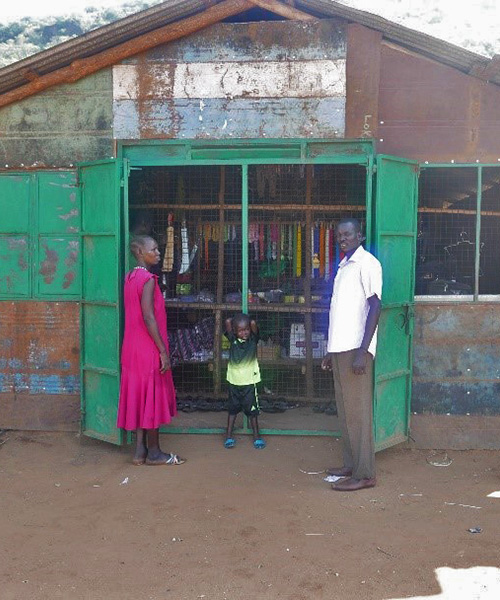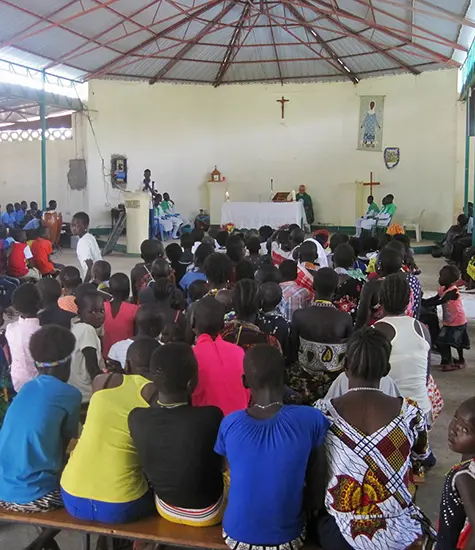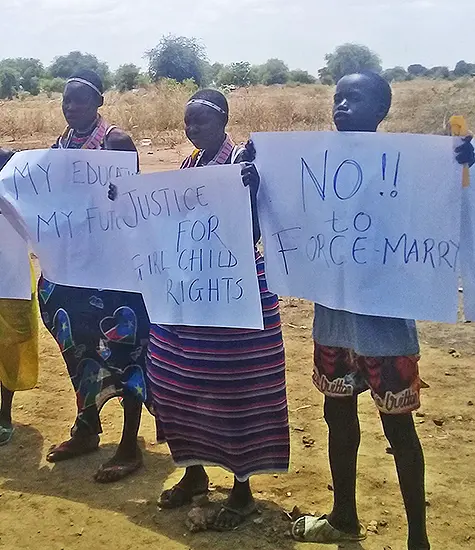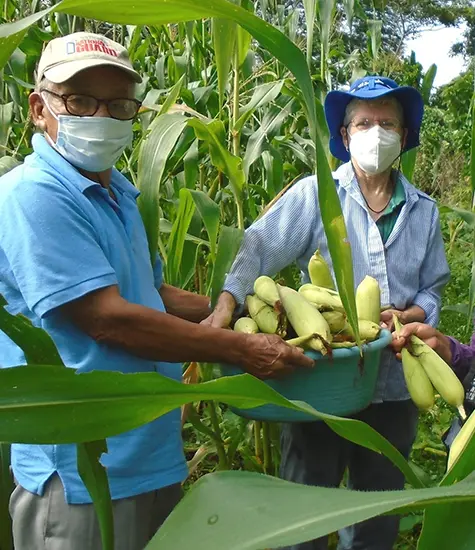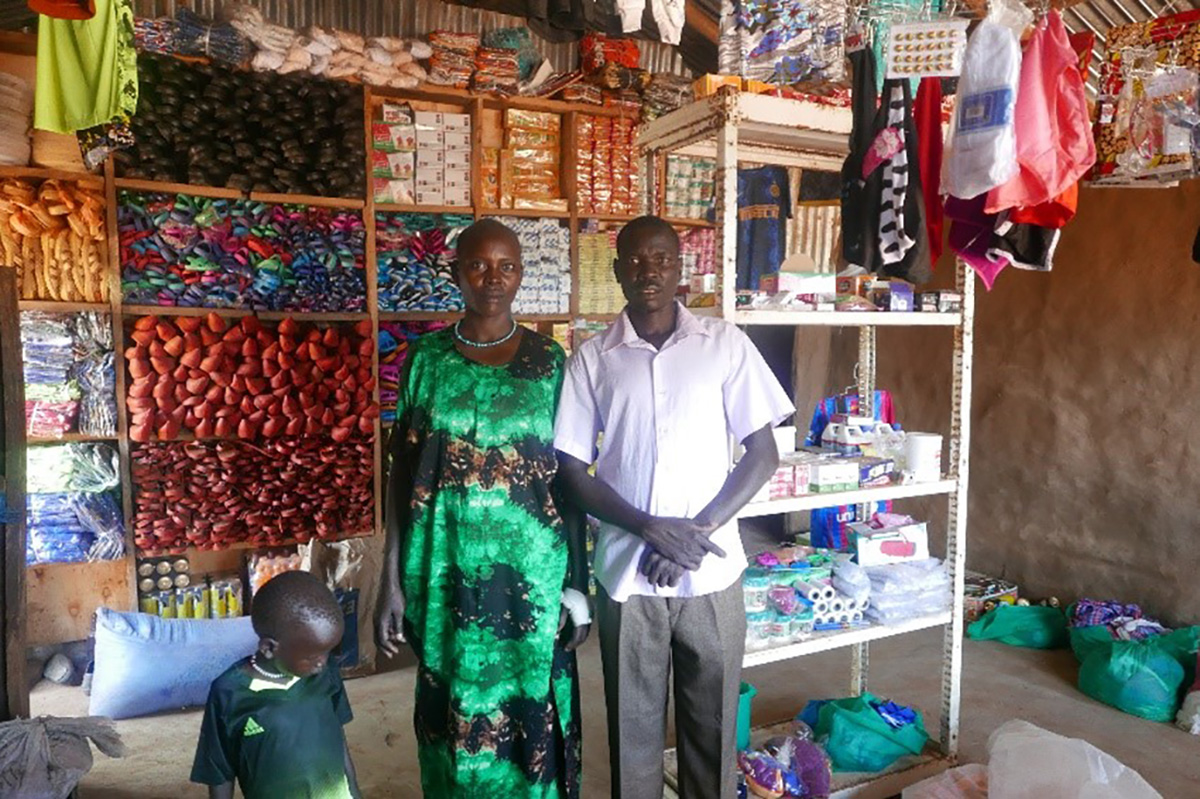
Mary and Marino Mero Loror in their store in Napil, South Sudan (Photos by Gabe Hurrish)
Marino Mero Loror is an agent of change among his Toposa people. He is ahead of his time and shows that husband and wife (or in his case: wives) can work together to make the family stronger. Slowly attitudes toward women and children are changing.
This edited first-person account is based on interviews with Marino; his first wife, Mary; and other Toposa people in Napil.
My name is Marino Meri Lorot. I was born in Kapoeta, South Sudan, about 39 years ago (I am not sure of my exact age). I was raised in a family of three boys and four girls, but one of my sisters has passed. I am the third.
During the uprising against Arab control of all Sudan, we had a very bad war all over South Sudan. I lived in Kapoeta because the Sudan People’s Liberation Movement (SPLM) was in Narus and the Arabs were in control of Kapoeta. There was no school at that time. I had no way to study and move out of there. I went to school but dropped out during Primary 5 (fifth grade) because I had the responsibility for my family.
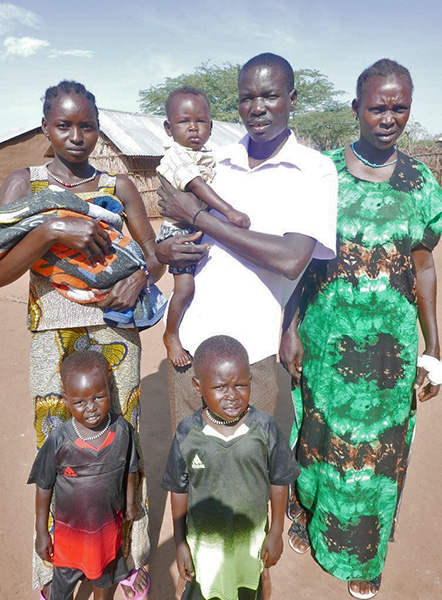
Natabo, Marino, Mary and the youngest children
I was about 19 years old when I got married to Mary in 2001. In 2015 I married my second wife, Notabo. I chose both of my wives myself. I knew them from before and had good relationships with both of them. My parents accepted them when I informed them of my intentions.
I had to pay 28 cows for my first wife, which I am still paying because the demands of her family changed and they wanted more cows. I have to pay many different members of the family, so it takes time to pay all of them.
I now have two wives and eight children. Mary Lorot is my first wife and Notabo Laodio is my second wife. Neither of them has much education, but Mary takes care of my business when I am gone. She is able to do that. Mary also participates in the Kuron Peace Village women’s group.
My two older girls currently attend schools in Uganda. Both of them are now in Primary 6 (sixth grade). My younger children are attending school here in Kuron at St. John Paul II Nursery and St. Thomas Primary. I chose these schools because I wanted a good education for my children. I myself lost the chance for a good education due to the circumstances at that time. Now I want my children to grow up with knowledge.
I moved to Napil in June 2009 and got land from my friend. I wanted to enroll my children in school here. It is important.
When I arrived in Napil, I started our supply store, and I make enough to support my family through the sale of my merchandise. I sell shoes, clothes, drinks, snacks and household items like soap and laundry. I also sell cigarettes, perfume, beads, thread, school supplies and many other things. I know what the people around here want to buy, so that is what I bring here.
The most expensive things I sell are high-quality clothes, and the most in-demand things I sell are food items. Sometimes I purchase sorghum locally and then take it to Kapoeta and sell it at a profit. I need to rent a vehicle when I do that.
I sometimes go as far away as Nairobi for about 14 days (more than 1,250 miles round trip). On those trips, I need to hire three different vehicles to bring my merchandise across the border to this place. The border crossing is difficult, as we have to be taxed twice: once by Kenya and once by South Sudan authorities. I have to be really careful with my budget to make sure that I can make a profit to support my family.
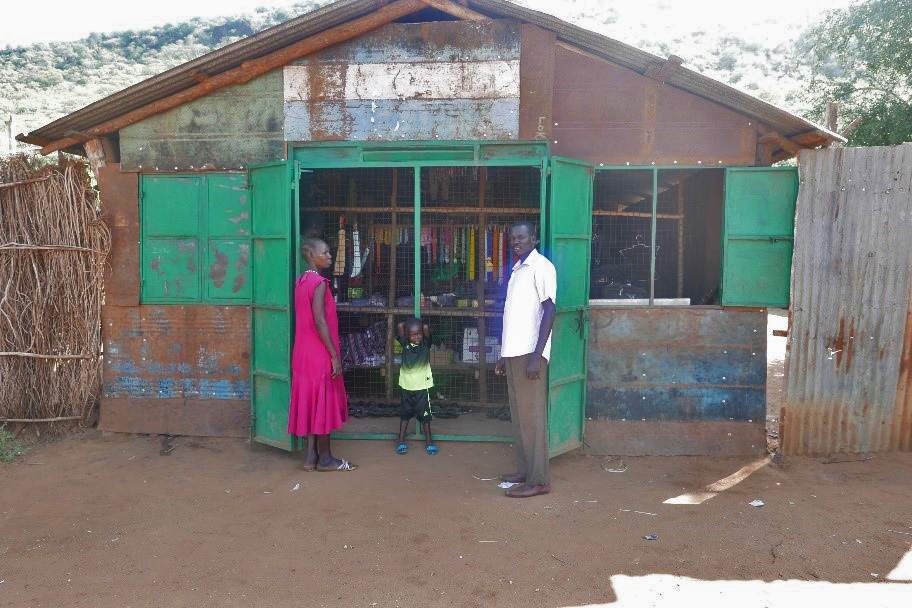
Marino in front of his store
In addition to my business, I was recently asked to maintain the new cellphone tower that brought MTN’s mobile phone service to our area for the first time last year. But I had to resign from that post because the little amount of money it paid made it not worth my time. I was losing time, and that impacted my business, which must come first. However, I still sell SIM cards and phone services at my store. It allows me to make some extra money for the school fees.
The new MTN tower has really helped me a lot in my business. Now with the cell phone I can call and communicate all the way to Nairobi. I can send them the money through the phone, and they can send the things I need. I save so much time and I save a lot of money.
This of course benefits my family tremendously. I can call my girls in Uganda and see how they are doing. It was my brothers in Kapoeta who taught me how to use the phone. The first time I used my phone, I remember, I called my friend in Kapoeta. I told him that I now had a cell phone. He was so surprised, and we both laughed.
I think the hospital is the most important service that Bishop Taban brought here. It helps people stay healthy and save the lives of children. Many people come from very far way. Before the hospital opened we saw so many people dying, but now it is much better.
I serve on the St. John Paul II Nursery PTA and I am also involved in church activities. I think the schools are also very important. Before the schools began, children were just roaming, but now they are in school and learning something. Even people who don’t have money are sending more children to school. Before the Kuron Peace Village started, the local people didn’t send their children to schools. That has changed now, as they have seen the benefits for previous graduates, so they want their children to learn too.
Some of the other Toposa men don’t send girls to school. They tell me, “You are losing cows. Why don’t you marry them all and get the cows?” I just tell them, “Let them learn, and you will see the progress. When they finish school, they come and can work in good jobs. And that can also give me cows. Then they can marry.”
I have seen many changes in this Kuron area. People are not like before. Now Kuron and Napil are seen as “towns” — they are considered modern, populated areas with “luxuries.” They see the schools, the stores, transportation — there is even medicine for animals. People say that “development” has come to the Kuron area.
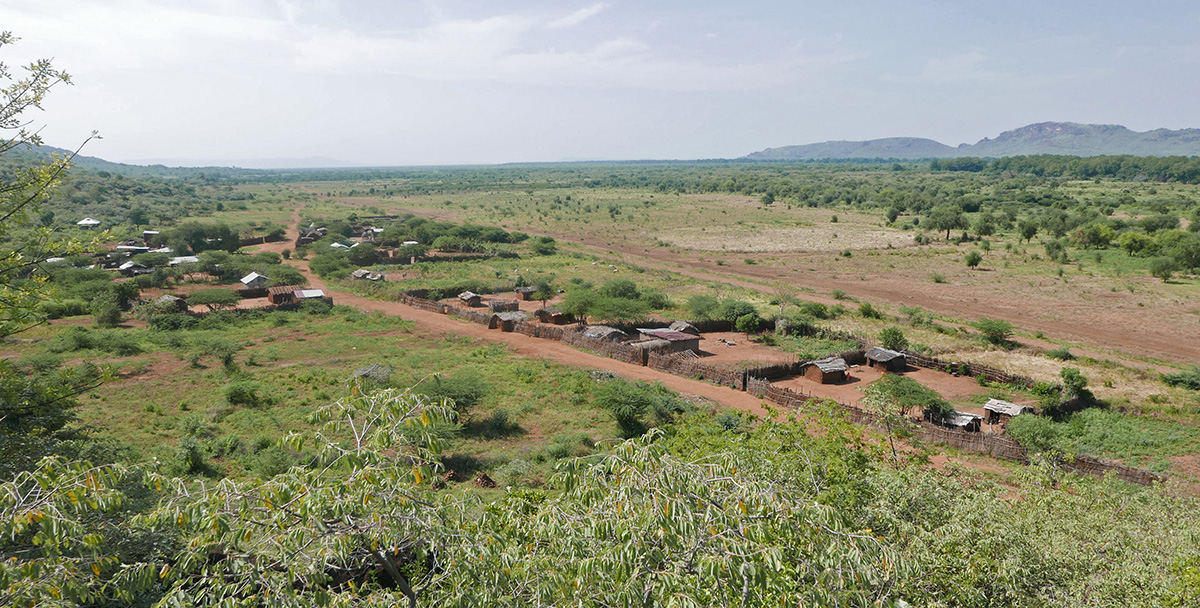
Napil Village

